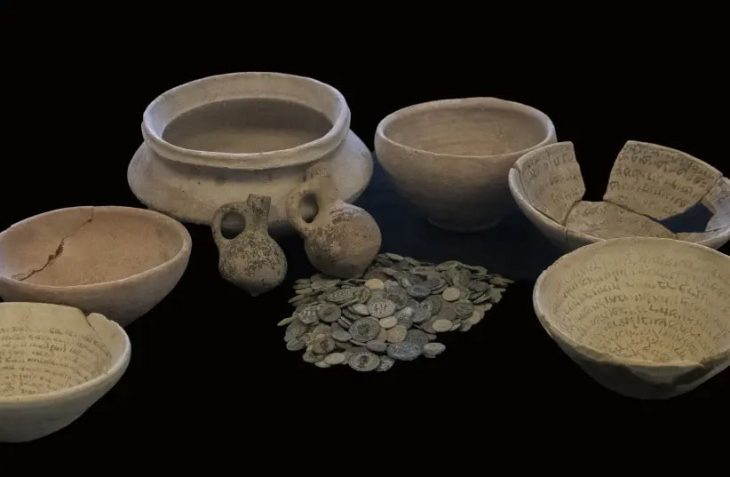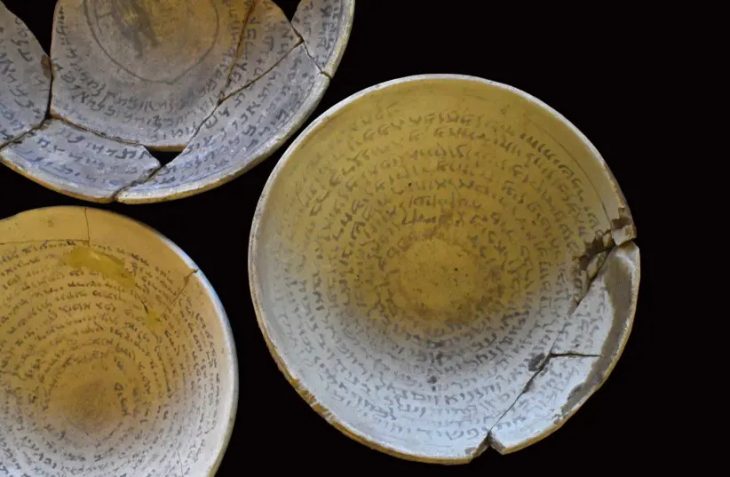The Israel Antiquities Authority (IAA) announced a stunning seizure on Monday, uncovering a hidden trove of ancient artifacts within a Jerusalem resident’s home. The individual is suspected of involvement in the illicit antiquities trade.
The most captivating finds were 1,500-year-old “incantation bowls” – Mesopotamian pottery inscribed with spells and curses dating back to the 4th-8th centuries CE. Imagine a time before widespread literacy, where these bowls served as amulets to ward off evil spirits, illnesses, and misfortune. The IAA even found a bowl depicting a “night demon,” the very entity it was meant to repel. Following a common practice of the era, these bowls were likely buried beneath the floor for added protection.

The raid yielded a wealth of historical items beyond the incantation bowls:
- Hundreds of antique bronze and silver coins
- Glassware, hinting at daily life in the past
- Ancient weapons, whispering tales of bygone conflicts
- Rare bone and ivory artifacts, approximately 3,000 years old, adorned with a captivating blend of Phoenician and Egyptian motifs. These included scenes from the animal world alongside geometric designs. Particularly noteworthy were two facing griffins (winged lions with human faces) and an artifact depicting a procession of four-winged lions.
The intricately decorated ivory pieces, especially rare for this period, were likely used as decorative furniture attachments, fastened by nails in the ninth and eighth centuries BCE. The IAA believes these artifacts, along with the bowls, were illegally excavated from Biblical mounds in Samaria or the North of Israel.
The Authority emphasizes the gravity of this discovery, not just for the inherent value of the artifacts, but also for the damage inflicted by illegal looting. These artifacts, once meticulously placed within their historical context, are now stripped of their narrative due to greed. The IAA confiscated documents from the residence which they hope will lead them to the source of these items and potentially expose a much wider network of illegal traders.
This discovery serves as a stark reminder of the importance of protecting our cultural heritage. By safeguarding these irreplaceable artifacts, we safeguard our collective past and ensure future generations can connect with the stories they hold.
